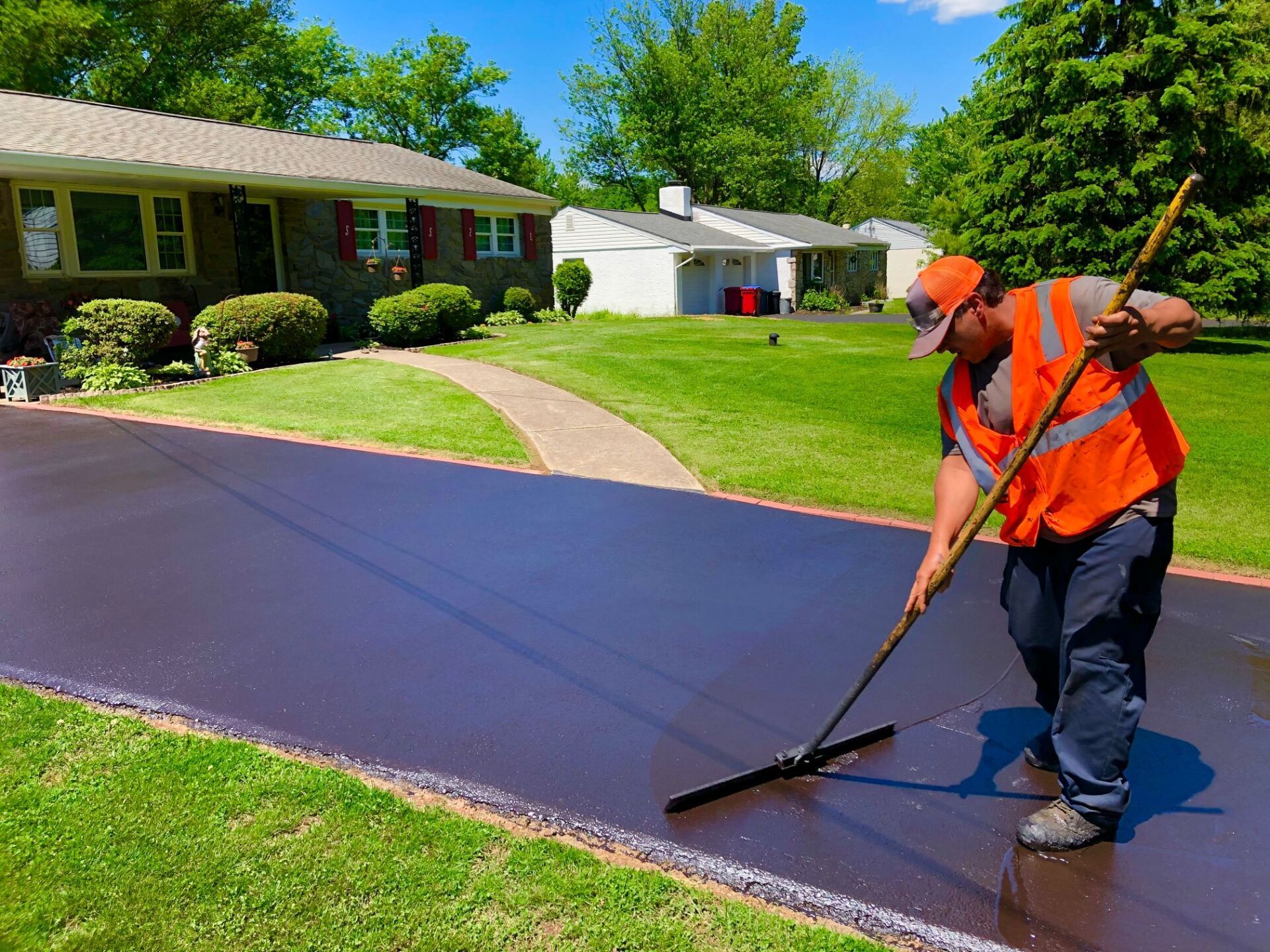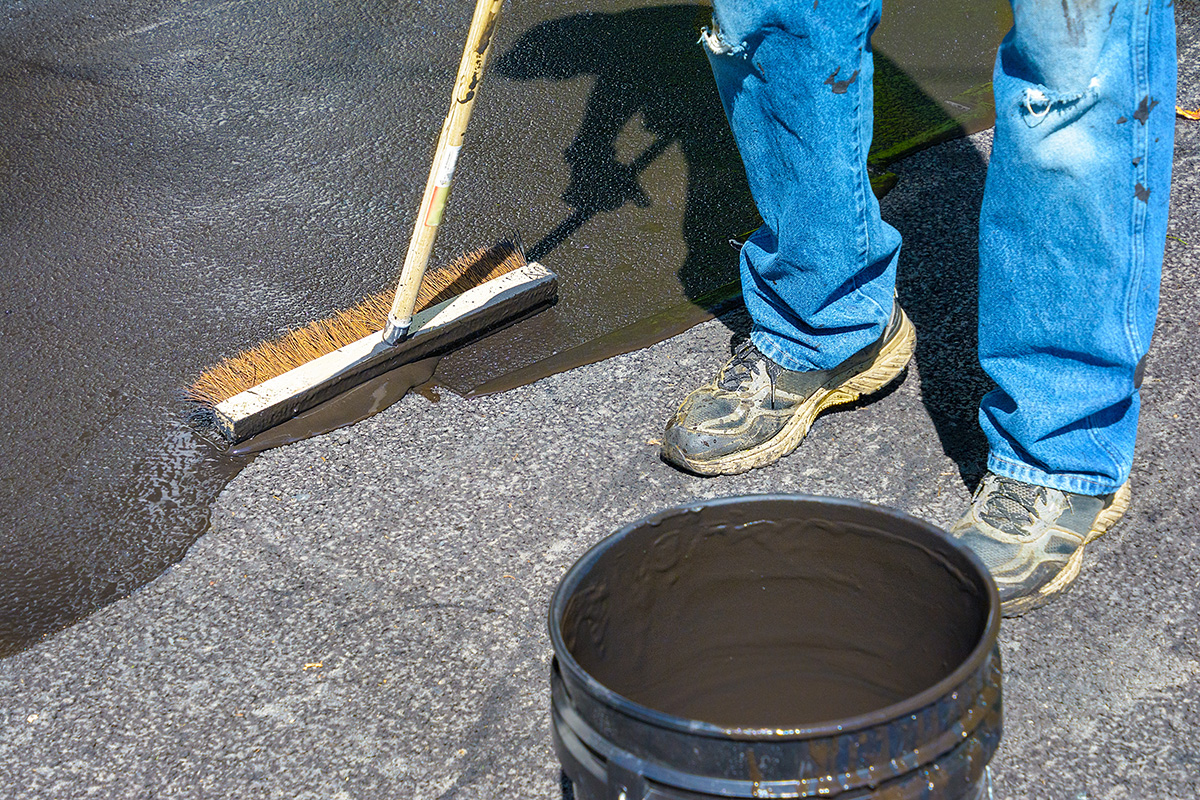Discover the Power of Commercial Parking Lot Leading and Asphalt Sealing
Discover the Power of Commercial Parking Lot Leading and Asphalt Sealing
Blog Article
Hot Mix Asphalt: A Sustainable Solution for Pavement
Warm Mix Asphalt (HMA) has actually become a leading sustainable option for pavement services, providing a myriad of environmental benefits and innovative technologies. Its capacity to reduce and reuse products power usage presents an engaging instance for its fostering in roadway building projects. Moreover, the long-term efficiency and longevity of HMA make it a recommended choice for facilities development. As the demand for environmentally friendly construction techniques grows, exploring the subtleties of HMA's sustainability can offer valuable understandings into the future of sidewalk options.
Environmental Benefits of Warm Mix Asphalt

Furthermore, Warm Mix Asphalt helps to alleviate urban warm island results. Its dark color soaks up sunlight, lowering the amount of warm mirrored back into the ambience contrasted to lighter-colored pavements. This can decrease ambient temperatures in metropolitan locations, decreasing the demand for a/c and ultimately minimizing power consumption.
In enhancement, Warm Mix Asphalt contributes to boosted stormwater management. Its porous nature enables water to penetrate the sidewalk and reenergize groundwater supplies, reducing runoff and the risk of flooding. These environmental benefits make Hot Mix Asphalt a sustainable option for paving highways and roadways.
Power Efficiency in HMA Production
Is energy efficiency an important consider the manufacturing of Warm Mix Asphalt (HMA)? Definitely. Energy plays a considerable function in the production of HMA, affecting both expense and environmental sustainability. One essential aspect of energy performance in HMA manufacturing is the usage of cozy mix asphalt (WMA) innovations (commercial parking lot paving). WMA permits for the blending and positioning of asphalt at lower temperatures compared to conventional hot mix asphalt, causing lowered power usage during manufacturing. This procedure not only decreases gas use however also decreases greenhouse gas exhausts, making it a much more environmentally pleasant option.
In addition, developments in plant modern technologies have led to more energy-efficient HMA manufacturing procedures. By optimizing power use in HMA production, the market can lower its carbon impact while maintaining top notch sidewalk materials.
Recyclability of Hot Mix Asphalt
The recyclability of Warm Mix Asphalt (HMA) is a crucial aspect of its sustainability and long-lasting ecological influence. HMA is one of the most recycled materials in the USA, with over 100 million lots of recovered asphalt sidewalk (RAP) Look At This being recycled each year in brand-new pavement construction. Recycling HMA provides a number of ecological advantages, useful source such as lowering the demand for virgin materials, lowering energy consumption during production, and reducing the amount of waste sent to garbage dumps.
The procedure of reusing HMA includes grating the existing sidewalk, squashing it into smaller pieces, and mixing it with new aggregate and asphalt binder to create a recycled mix. This recycled mix can typically carry out as well as or even far better than conventional HMA, while calling for less raw products and generating reduced greenhouse gas discharges. By including RAP right into brand-new sidewalk jobs, road companies can save natural sources, lower prices, and lessen the ecological footprint of road construction and maintenance tasks. On the whole, the recyclability of HMA plays a substantial duty in promoting sustainable techniques within the sidewalk market.

Long-Term Efficiency of HMA
Asphalt pavements demonstrate durability and strength over an extended duration, reflecting the long-lasting efficiency of Hot Mix Asphalt (HMA) Furthermore, advancements in HMA innovation, such as the usage of polymer-modified binders and warm mix asphalt, have actually further improved the durability and durability of HMA sidewalks. By prioritizing high quality building and construction and maintenance methods, HMA proceeds to confirm itself as a sustainable and economical option for durable pavement infrastructure.

HMA: Longevity and Sustainability
Showing both resilience and sustainability, Warm Mix Asphalt (HMA) has become a foundation in the construction of durable pavement frameworks - angled parking. HMA's durability comes from its ability to stand up to heavy tons, rough weather condition problems, and high web traffic quantities, making it a dependable selection for roadways, highways, and airport terminal runways. The structure of HMA, which typically consists of aggregates, binder, and filler, plays a critical duty in improving its durability and resistance to damage
Furthermore, HMA's sustainability depends on its recyclability and energy-efficient manufacturing process. The capability to recycle redeemed asphalt pavement (RAP) in new HMA blends reduces the need for virgin products and minimizes the environmental effect of sidewalk building and construction and maintenance. Furthermore, the energy effectiveness of generating HMA exists in its lower mixing temperatures compared to various other sidewalk products, bring about reduced energy usage and greenhouse gas discharges.
Final Thought
Finally, hot mix asphalt (HMA) uses a lasting remedy for sidewalk with its eco pleasant features. HMA's recyclability, power performance in manufacturing, and lasting durability make it an environmentally friendly option for road construction. By conserving natural go to this site deposits, reducing waste, and decreasing greenhouse gas exhausts, HMA plays a critical duty in advertising sustainability in facilities advancement. Its capability to reduce urban warmth island results additionally highlights its significance in producing ecologically mindful and resilient pavement systems.
HMA is one of the most recycled products in the United States, with over 100 million lots of reclaimed asphalt sidewalk (RAP) being reused each year in new sidewalk building.The process of reusing HMA involves crushing the existing pavement, squashing it right into smaller sized items, and mixing it with new aggregate and asphalt binder to produce a recycled mix.Asphalt sidewalks demonstrate toughness and strength over a prolonged duration, showing the long-term efficiency of Warm Mix Asphalt (HMA) Furthermore, advancements in HMA innovation, such as the usage of polymer-modified binders and warm mix asphalt, have actually even more improved the resilience and long life of HMA pavements. The capacity to reuse redeemed asphalt pavement (RAP) in new HMA combinations decreases the need for virgin products and minimizes the ecological influence of pavement building and upkeep.
Report this page